Truth About Homosexuality Clinics.
Photographer Paola Peredes first caught the media’s attention with her powerful photo series “Unveiled” where she documented the moment she told her parents about her homosexuality. And now she’s taking it further with her new series titled “Until You Change”, where she re-enacts the horrible events that take place daily in the Ecuadorian rehab facilities that ‘cure’ homosexuality in the most brutal ways.
A friend tipped her off about the clinics that claim to ‘cure’ homosexuality using torturous techniques such as starvation, abuse and sometimes even ‘corrective rape’. These clinics hide under the official operations like treatment facilities for alcoholics and drug addicts, but for a charge of $500-$800 a month, they also ‘treat’ gay people.
“Since I was going through my own personal journey with my sexuality at the time, it affected me in a completely personal way,” Paola told Huck Magazine. “The thought that I could be locked up in one of these clinics myself lingered in my mind for years and I think, deep down, I knew I had to create something about it.”
So she went undercover. Wearing a microphone, hidden in her bra, she was taken by her parents to one of these facilities, to get closer to these horrors herself: “What shocked me the most was when I saw the girls,” says Paola. “They had been forced to wear makeup and my informants had described it perfectly: bright red lips, pink cheeks, and blue eye-shadow.”
This inspired Paola to recreate some of these moments in her gripping photo series which aims to educate people about this dire situation that’s happening not only in Ecuador, but also in Europe, the US, and South America.
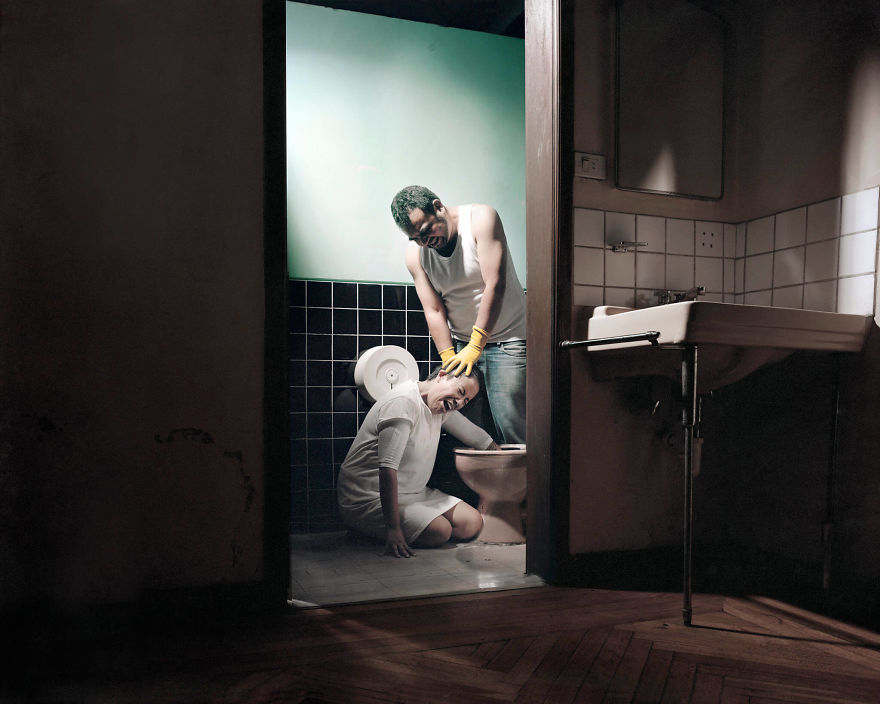
In the bathroom, she must be vigilant when mopping and scrubbing every surface with a toothbrush. She must pick up all the hairs on the floor. If she makes a mistake, an orderly pushes her bare hand into the toilet bowl and holds her down until it is clean.
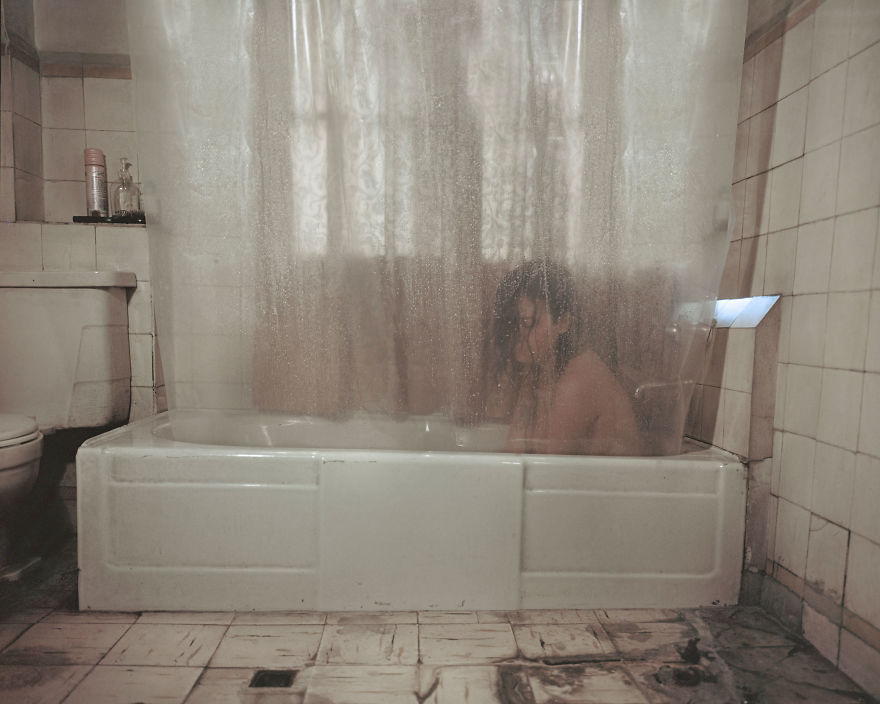
She is alone for a maximum of seven minutes, a minimum of four, for her shower. Ahead of her, hours of Catholic music, study of Alcoholics Anonymous literature and therapy for her homosexuality ‘disorder’.

Young Ecuadorian women have provided testimony that they were raped by male employees as part of ‘treatment programs’ to cure homosexuality. Others have some form of memories or nightmares suggesting that they were sexually assaulted, possibly after they were drugged.
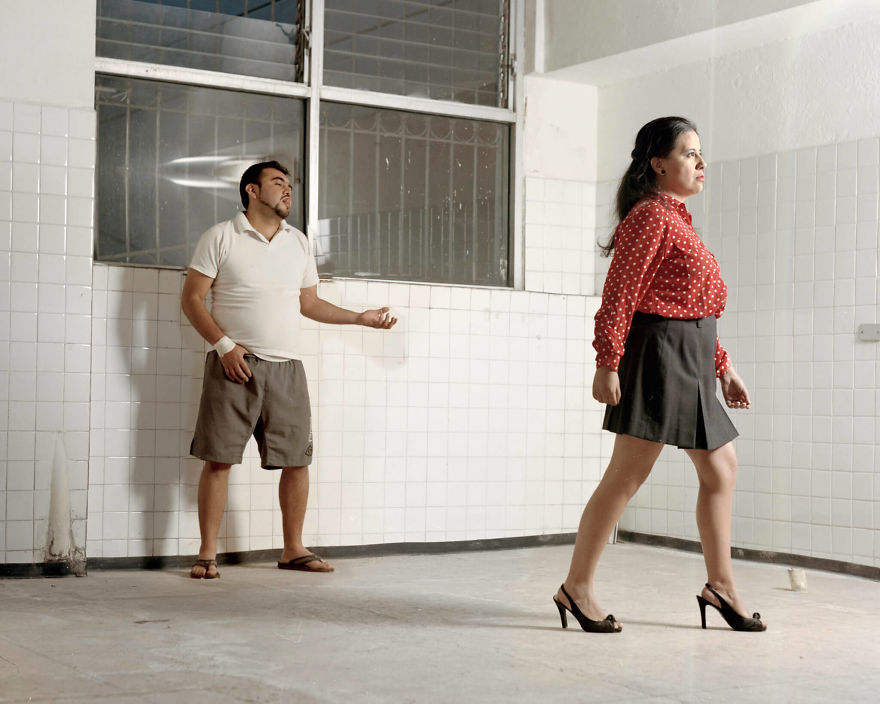
Under the gaze of the male therapist, the girls are made to dress in short skirts, make-up and heels and to practice walking like ‘real women’. The act is emotionally draining and physically painful.
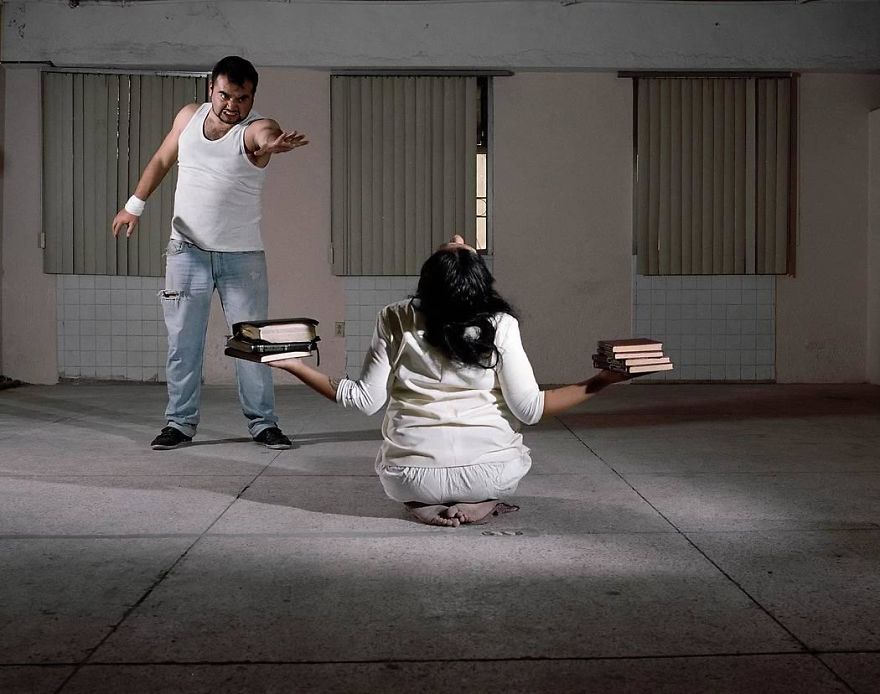
One inmate knows she is not allowed to talk to the other girls. She is caught passing notes and taken to the therapy room. When she arrives, alone, loud religious music is playing. The therapist hits her in the chest, orders her to kneel on the cold floor and spread her arms. She takes the weight of the bibles, one by one, and is still.
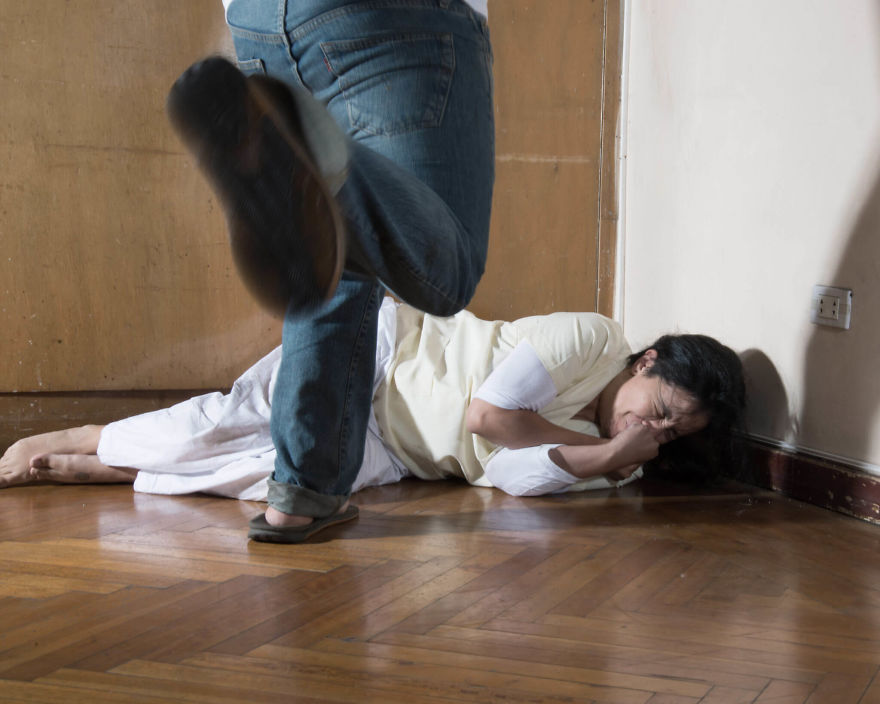
Refusing to eat leads to questioning the authority of the staff. Later, she is kicked into a corner by a male employee to set an example to the others.
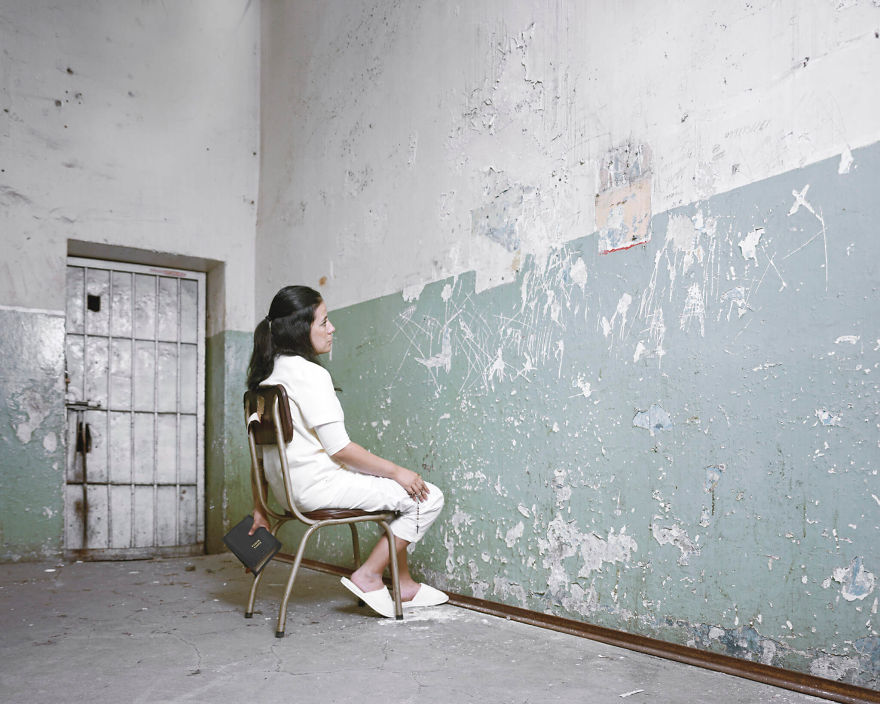
In Ecuador, approximately 200 facilities exist to ‘cure’ homosexual men, women and transsexuals. Unfortunately, the majority of these centers remain open because they are disguised as Treatment facilities for alcoholics and drug addicts. Imprisoned against their will, those interned are subject to emotional and physical torture, through force-feeding, beatings and corrective rape.
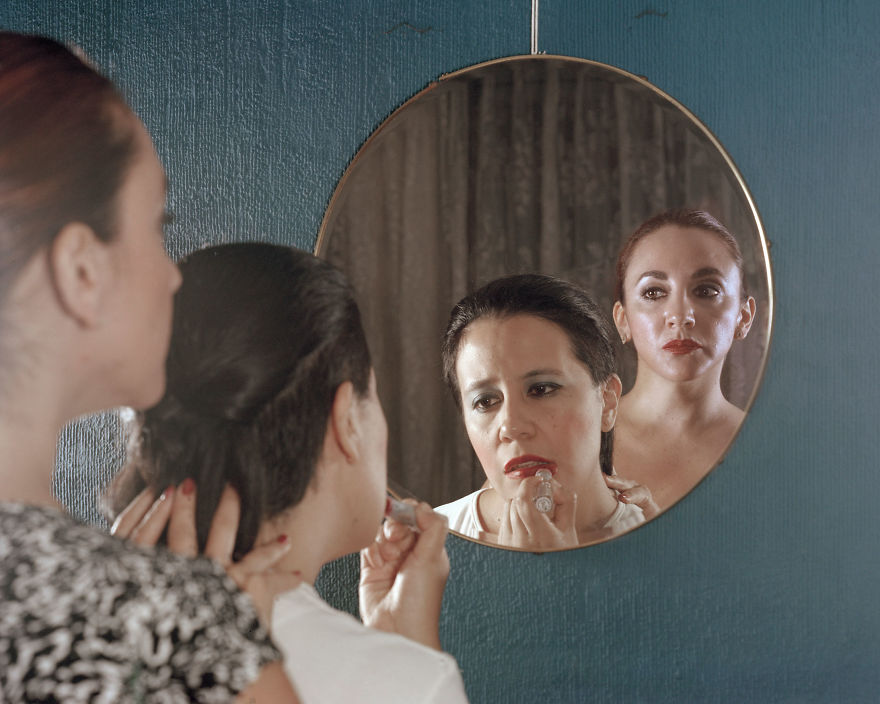
In front of the mirror, the ‘patient’ is observed by another girl, who monitors the correct application of the make-up. At 7.30am, she blots her lips with femininity, daubs cheeks, until she is deemed a ‘proper woman’.
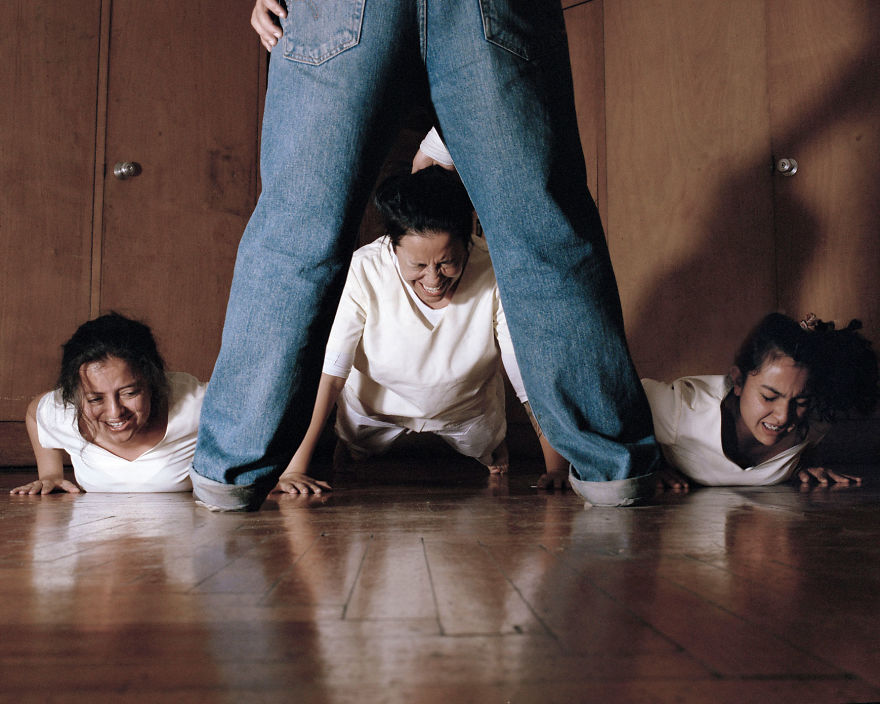
As part of the daily regime designed to ‘cure’ women of their sexuality, exercise takes place in the early morning or late at night. A therapist or orderly shouts at the girls over push-ups and squats.
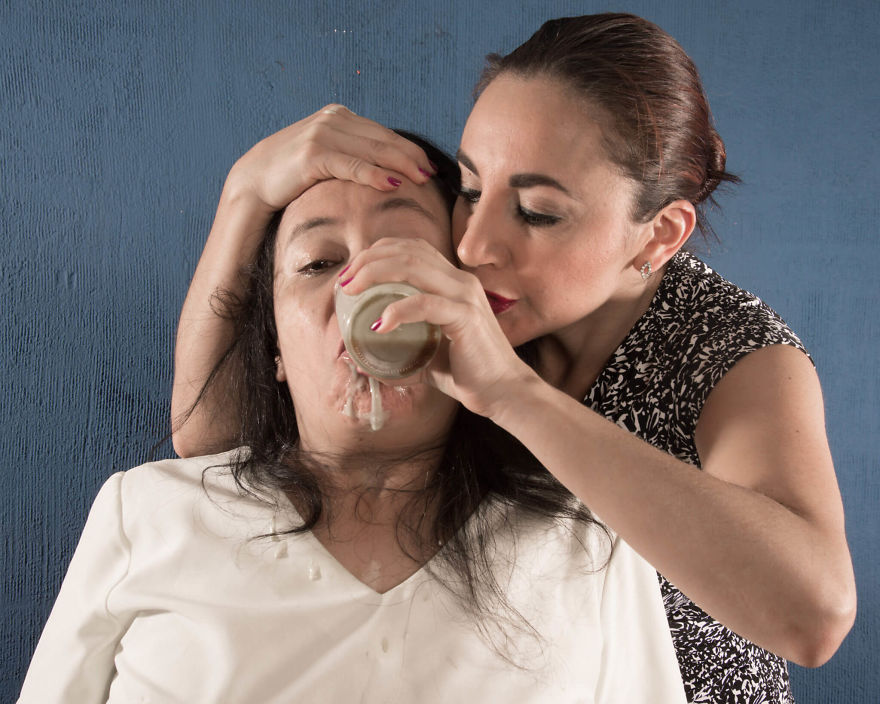
The beverage is worse than a beating. An orderly force-feeds the girl a corrective concoction of liquid for misbehavior. She does not know what she is drinking. The women in the center share their suspicions that the beverage contains chlorine, bitter coffee, and toilet water.
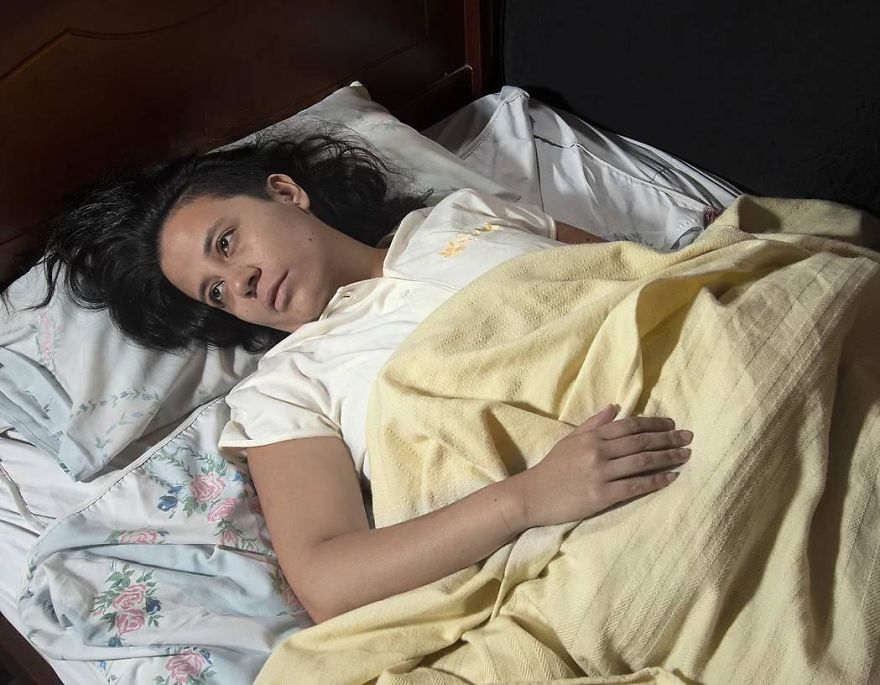
Sleep eludes the girls, told she is an abomination to her country’s God, a disappointment to her parents. She is an involuntary patient at an illegal, immoral clinic.
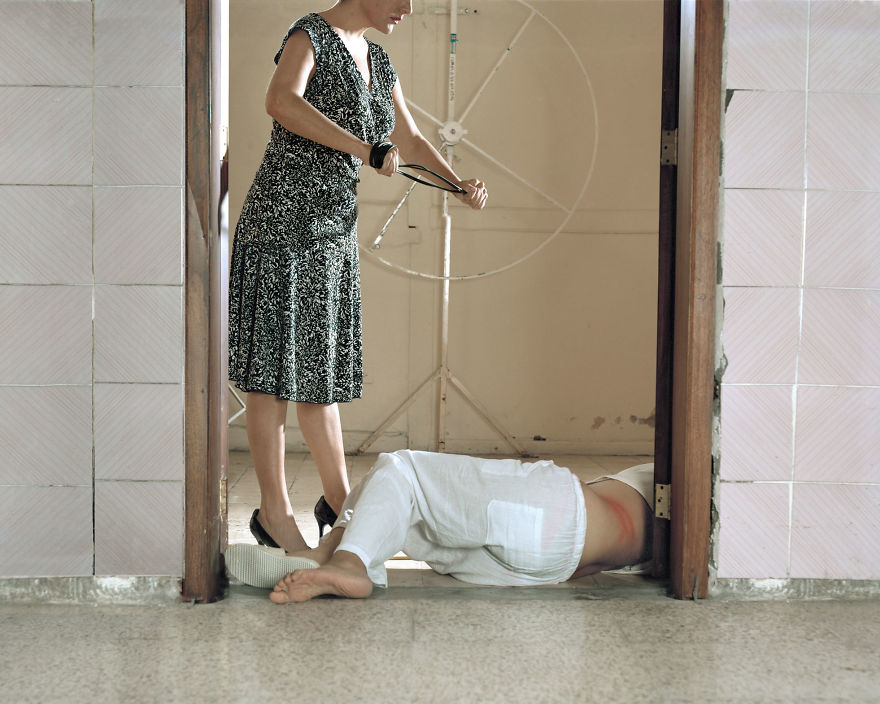
A girl is beaten with a TV cable for failing to pick up her bag from a chair, often other gay teenagers in the center witness this. A book of anomalies worthy of punishment is read aloud daily to the group.
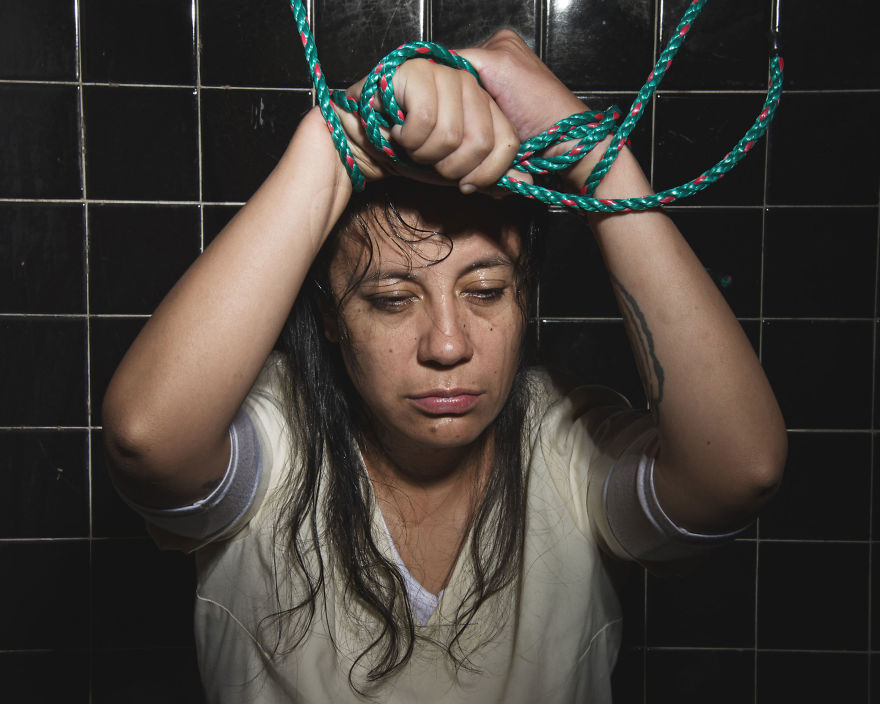
The first time she was tied up was the night her parents hired men to sedate and kidnap her in order to bring her to the center. Once there, she has been tied to a bed or left in the bathroom on many nights.
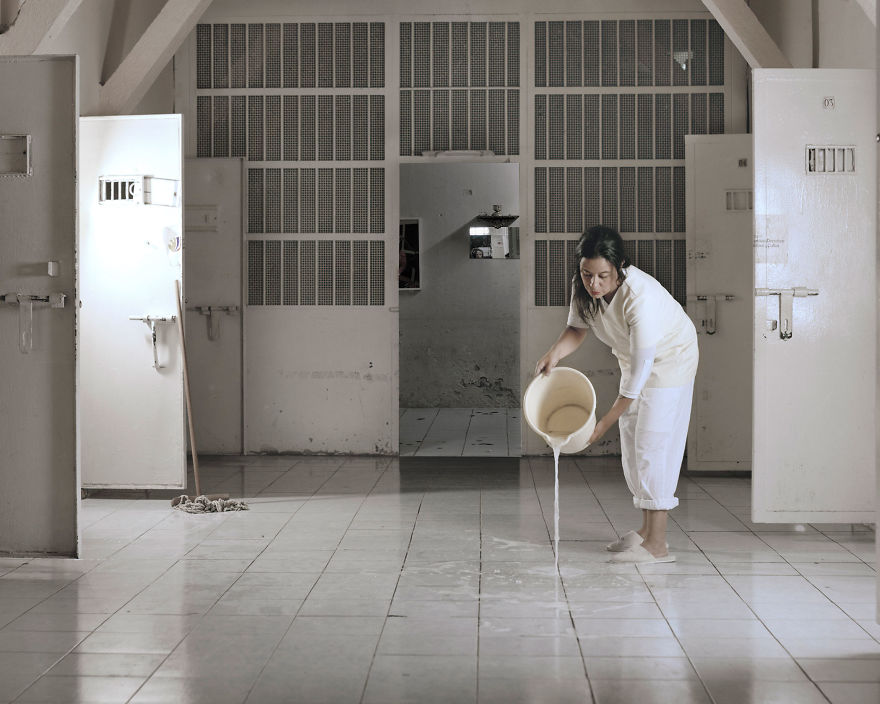
Each imprisoned woman spends hours and hours of her time on cleaning duties. Each day she is allocated to a cleaning group for the office, corridor, kitchen or bathroom. The girls later recall feeling empty or worse, feeling nothing. If the staff are not satisfied with her work, they insult and beat their charge on the spot.
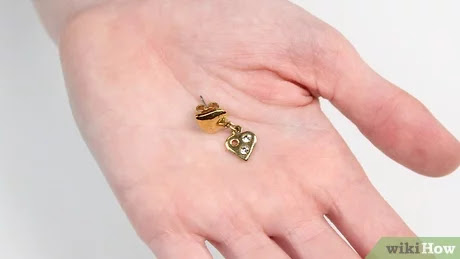


Comments